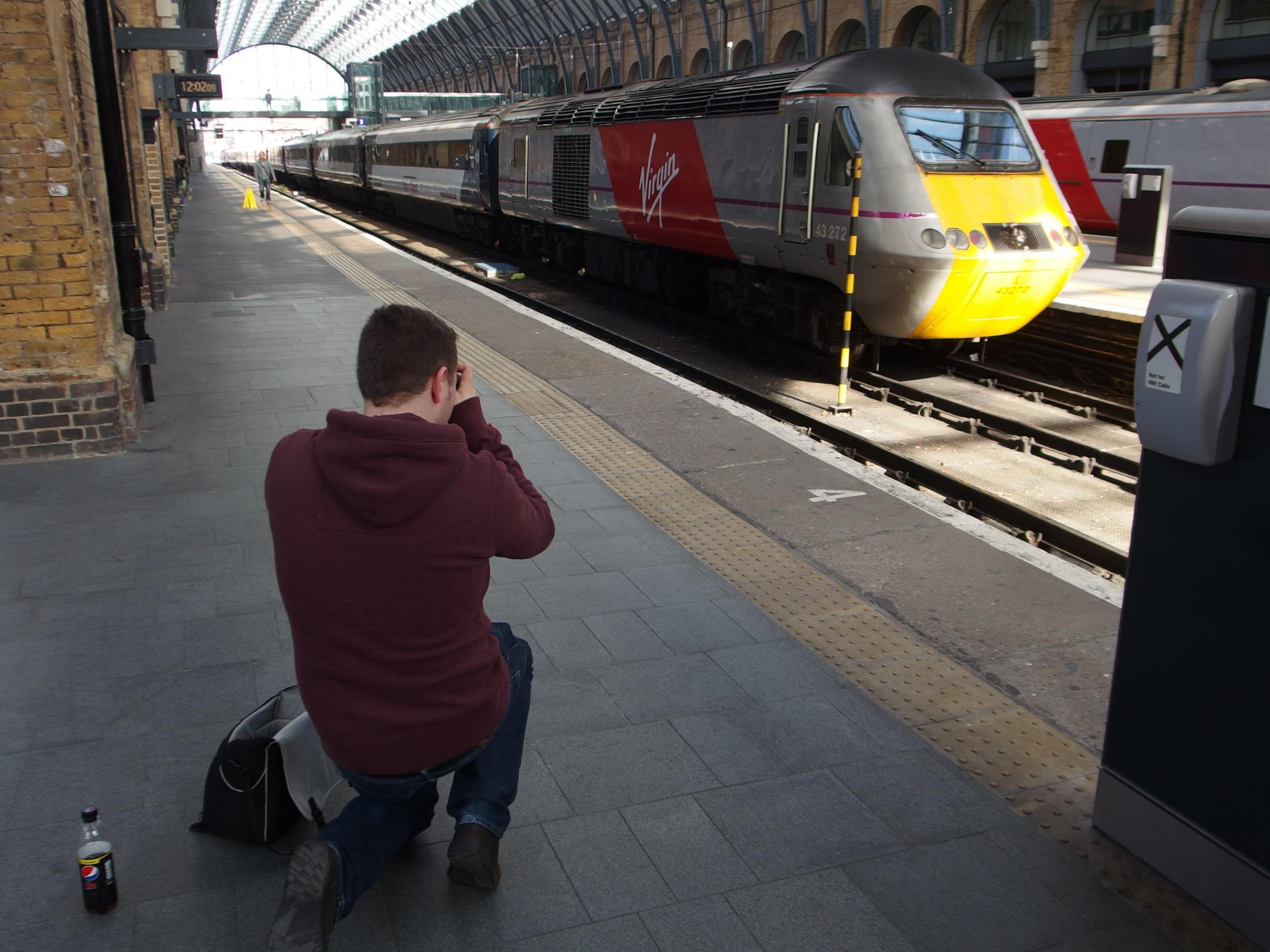Yet another broken-down rail franchise blocks the East Coast main line
'Stagecoach got their sums wrong and they will pay the price for that – not the taxpayer': Chris Grayling, transport secretary

Your support helps us to tell the story
From reproductive rights to climate change to Big Tech, The Independent is on the ground when the story is developing. Whether it's investigating the financials of Elon Musk's pro-Trump PAC or producing our latest documentary, 'The A Word', which shines a light on the American women fighting for reproductive rights, we know how important it is to parse out the facts from the messaging.
At such a critical moment in US history, we need reporters on the ground. Your donation allows us to keep sending journalists to speak to both sides of the story.
The Independent is trusted by Americans across the entire political spectrum. And unlike many other quality news outlets, we choose not to lock Americans out of our reporting and analysis with paywalls. We believe quality journalism should be available to everyone, paid for by those who can afford it.
Your support makes all the difference.The East Coast main line, connecting London King’s Cross with Leeds, York, Newcastle and Edinburgh, is the UK’s flagship rail route. But it is also a graveyard for franchisees who bid too much and then walk away, leaving the public sector to pick up the pieces.
The latest casualty is Virgin Trains East Coast, 90 per cent owned by Stagecoach and 10 per cent by Sir Richard Branson’s organisation.
“It is now clear that this franchise will only be able to continue in its current form for a matter of a very small number of months and no more,” the transport secretary told Parliament.
Chris Grayling said: “The problem is that Stagecoach got its numbers wrong. It overbid and is now paying a price.
“I will need to – in the very near future – end the contract and put in place a successor arrangement to operate this railway.”
Since the franchise began in 2015, it has paid the Treasury almost £1bn. But Stagecoach has lost nearly £200m on the deal, a sum that equates to over one-fifth of the firm’s total market value. It works out at a loss of £2 per second, around the clock, since the franchise began on 1 March 2015.
Mr Grayling said: “I have not yet made a decision on the successor operator to run the East Coast railway until the long-term plans for the integration of track and train can begin in 2020. There is no question of anyone receiving a bailout. Stagecoach will be held to all of its contractual obligations in full.”
The transport secretary is considering whether Stagecoach could continue to operate trains on what he called a “short-term, not-for-profit” basis.
“The alternative option is that the East Coast franchise would be directly operated by the Department for Transport through an Operator of Last Resort,” he said.
The transport secretary said: “This will not impact on the railway’s day-to-day operations. The business will continue to operate as usual with no impact on services or staff on the East Coast.”
Two previous franchisees have failed to complete their terms. GNER, part of the Sea Containers conglomerate, failed in 2007. National Express took over, but handed back the keys in 2009.
From 2009 to 2015, trains were successfully run by Directly Operated Railways, part of the Department for Transport.
The re-privatisation of the East Coast main line was highly controversial. At the launch of Virgin Trains East Coast, the then-rail minister, Claire Perry, said “Virgin and Stagecoach raised the bar” with their joint bid for the franchise.
In 2016, the Labour leader, Jeremy Corbyn, made a video that sought to depict a "ram-packed" train from London to Newcastle to highlight overcrowding.
After Mr Grayling’s statement, Labour’s shadow transport secretary, Andy McDonald, called the episode “Another example of rail privatisation failing to deliver.
Stephen Joseph, chief executive of Campaign for Better Transport, said: “The current franchising process is in a mess. Train companies have overbid – but in fact the entire process has encouraged them to do so.
"Failures on the East Coast are also down to Government mismanagement of the new trains, which were directly commissioned by the Department for Transport, not the operators, and unrealistic promises on track improvements.
“Passengers and the wider community need a rail system with much more stability – and where they get a real say.”
Virgin Trains, which runs trains on the West Coast main line from London Euston to Birmingham, Manchester, Liverpool and Glasgow, has been given a short “direct award” to allow it to continue operating the franchise until a new West Coast Partnership is created. It is majority owned by the Virgin Group, with Stagecoach holding a minority share.
Stagecoach is on the shortlist for the East Midlands franchise, for the line between London St Pancras, Leicester, Derby, Nottingham and Sheffield. It is the incumbent on the line, and competing against Abellio, Arriva and a joint venture between First and Trenitalia, the Italian state railway.
Join our commenting forum
Join thought-provoking conversations, follow other Independent readers and see their replies
Comments